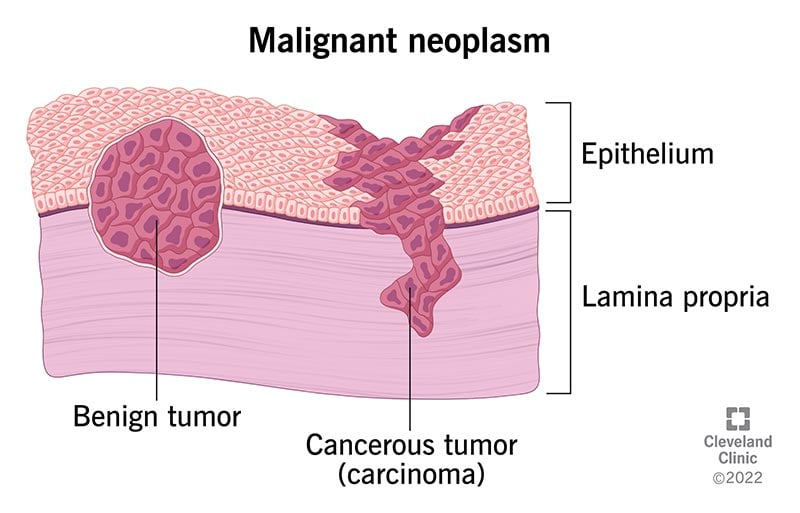
Malignant neoplasms are cancerous tumors. They develop when cells grow and divide more than they should. Early detection is key, so be sure to attend all recommended cancer screenings.
Risk of cancer in people under 50 has increased by almost 80% in three decades. Experts attribute this phenomenon to escalating risk factors such as poor diet, obesity, sedentary lifestyles and changes in reproductive factors
Lusaka, Oct. 20 [EL PAÍS] – There are many reasons why a human cell can go berserk and start to multiply uncontrollably until it produces a malignant tumor. Smoking, for example, causes mutations that can lead a cell to reproduce without restraint. Alcohol, excessive exposure to the sun or even chance can also favor these errors in cell replication.
Also Read: Impuupu: Amazing science based health benefits of pumpkin seeds.
Some research suggests that pumpkin seeds may contain plant compounds that could help protect against cancer growth. In fact, a 2012 observational study found that eating pumpkin seeds was associated with a reduced risk of breast cancer in postmenopausal women.
Former Health Minister, Hon. Dr. Chitalu Chilufya, shares articles on a healthy eating lifestyle and you may want to follow them. He advises that we pay special attention to what we eat if we are to live long and healthy lives, eating traditional meals such as chibwabwa and Kalembula instead of Western processed foods.
Dr. Chitalu Chilufya states that Non Communicable Diseases (NCDs) are overtaking infectious diseases in terms of global mortality rates, and deaths from NCDs are forecast to exceed mortality from infectious, maternal and child diseases even in Sub-Saharan Africa by 2030.
A study recently published in the journal BMJ Oncology estimates that the global incidence of tumors among people under 50 years of age has increased by 80% in three decades.
Although the data must be viewed with caution due to the differences between regions, the use of different sources of information and the probability of under-reporting in developing countries, experts point to unhealthy habits, poor diet, sedentary lifestyles, pollution, excessive consumption of antibiotics and reproductive factors, among others, as responsible for the increase in early-onset cancer.
They also do not rule out the possibility that other, still unknown factors might be prompting this change. It is not always possible to establish a direct causality when it comes to cancer, or even what factors may be involved; still, there are some points that experts are already clear about, such as that lifestyle plays a determining role.
“Changes in diet, lifestyle and environment since the turn of the 20th century, resulting in increased rates of obesity, physical inactivity, westernized diets and environmental pollution, may have affected the incidence of early-onset cancer. Additionally, alcohol, smoking and detrimental pregnancy exposures may have also [played a role],” the researchers state in the BMJ Oncology article.
All the usual suspects, such as smoking or an unhealthy diet (which are also behind other cardiovascular or metabolic diseases) have been increasing in recent decades and may be taking their toll, the experts suspect.
Ana Fernández Montes, who is a member of the Board of Directors of the Spanish Society of Medical Oncology (SEOM), and an oncologist at the Ourense University Hospital Complex, also advises paying attention to the exposome. That is, all the environmental exposures, such as diet, lifestyle, microbiome, obesity and environment, with which a person comes into contact throughout their life.
Also Read: Dr. Chilufya urges Govt to implement the One Health Approach.
◾The role of the microbiome
The experts are looking closely at the microbiome, which is the entire ecosystem of microbes that populate the intestine and take part in key functions of the body such as the defense against foreign agents.
No two microbiomes are the same. Everything varies depending on exposure to certain circumstances; for example, if a baby is born by cesarean section or natural birth, the type of diet or the consumption of antibiotics.
“Humans are the invading organism of bacteria. The microbiome is modulated with antibiotics, for instance, and these drugs are being more used now and could be having an effect,” explains Fernández Montes.
Elez is part of an international project to study the role of the microbiome, learn if it is a risk factor and, if that is the case, how to modulate it:
“There is a type of bacterium, Fusobacterium nucleatum, which is seen most frequently in a type of colorectal cancer. The existence of this bacterium in the tumor and in liver metastases has been shown,” explains the oncologist from Vall d’Hebron.
It is not known whether this bacterium or others are transient or if they cause the disease, but the scientific community continues to investigate their potential in the genesis or prognosis of cancer.
“Certain bacteria make immunotherapy treatment more effective or have fewer side effects,” emphasizes Elez.
The scientists admit that there are still many gaps in the research. In fact, Harvard researchers point out that this early-onset cancer “epidemic” might actually be part of something bigger; it could be “just one manifestation (the tip of the iceberg) or an example of an increasing trend towards greater incidences of many chronic diseases in young and/or future generations.”
Gain new perspectives by following Woodpecker’s Digest! To make well-informed and thoughtful decisions, one must be able to see things from perspectives other than one’s own.
©2023 Woodpecker’s Digest.
Putting news into perspective








